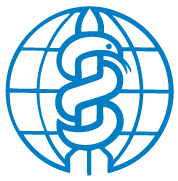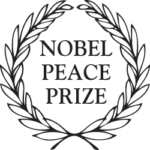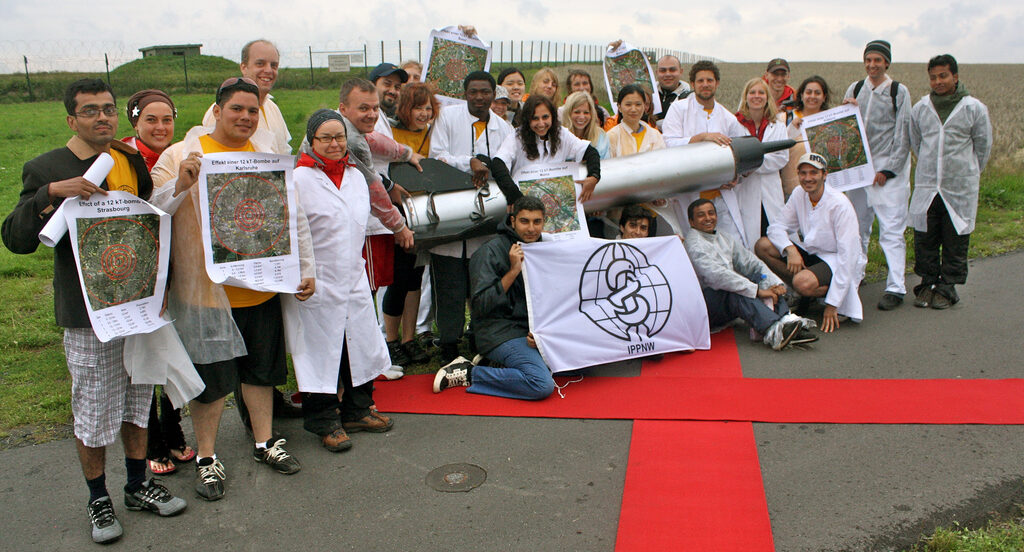
The elimination of nuclear weapons is an urgent medical, humanitarian, and public health imperative. Learn more and get involved today.
Peace and Health Blog
- IPPNW Statement on Israel’s Attacks on Gaza’s Healthcare System and Personnelby IPPNW on June 9, 2025 at 12:00 pm
Read the statement in full below and here. The International Physicians for the Prevention of Nuclear War (IPPNW) unequivocally condemns the continued and escalating attacks on Gaza’s healthcare system and medical personnel by Israeli forces. The ongoing deliberate targeting of hospitals, clinics, ambulances, and healthcare workers has resulted in catastrophic loss of life and constitutes
- Effects of nuclear war on public healthby IPPNW on May 27, 2025 at 5:35 pm
[The following statement was delivered on behalf of IPPNW by Dr. Andy Haines at the World Health Assembly on 26 May. A WHA resolution calling for an updated WHO study on the effects of nuclear war on health and health services was passed by a vote of 86-14, with 28 abstentions.] International Physicians for the
- India and Pakistan must now take steps for lasting peace in the regionby IPPNW on May 19, 2025 at 4:18 pm
[The South Asian affiliates of IPPNW have released the following statement on the ceasefire between India and Pakistan.] We, the South Asian affiliates of International Physicians for the Prevention of Nuclear War (IPPNW), the recipient of Nobel Peace Prize, are relieved at the ceasefire between India and Pakistan. We are further satisfied at the reports
- International Physicians call for immediate cease fire in South Asia; Warn of danger of “catastrophic nuclear conflict”by IPPNW on May 7, 2025 at 12:58 pm
Find the press release in full here. The International Physicians for the Prevention of Nuclear War (IPPNW) called for an immediate cease fire in South Asia after an initial round of cross border attacks by India and Pakistan early Wednesday morning South Asia time. “Conflict between these two nuclear armed states carries the risk of
- Lessons from a blackoutby IPPNW on May 4, 2025 at 1:04 am
by Carlos Umaña On Monday, April 28, a massive blackout engulfed the entirety of peninsular Spain, Portugal, and parts of Southern France. Nothing worked—no cell phones, no trains. I was in the subway station when everything suddenly went dark. My first thought: the shit has hit the fan. A nuclear exchange must have taken place
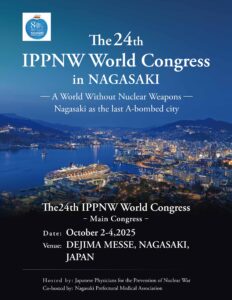 Join IPPNW’s 24th World Congress in Nagasaki, Japan. This historic occasion marking the 80th anniversary of the atomic bombings of Hiroshima and Nagasaki offers an unparalleled opportunity to reflect on the devastating consequences of nuclear weapons and to recommit to global efforts toward disarmament. The main Congress will be 2-4 October, 2025 with a Student Congress on 1 October.
Join IPPNW’s 24th World Congress in Nagasaki, Japan. This historic occasion marking the 80th anniversary of the atomic bombings of Hiroshima and Nagasaki offers an unparalleled opportunity to reflect on the devastating consequences of nuclear weapons and to recommit to global efforts toward disarmament. The main Congress will be 2-4 October, 2025 with a Student Congress on 1 October.
Earlier this month, IPPNW, ICAN, and Pugwash hosted a webinar, “Autonomous Armageddon: Nuclear Weapons and AI“, to explore the alarming dangers posed by the integration of artificial intelligence (AI) into nuclear weapons systems.
The expert panel discussed the general and specific risks AI presents to nuclear command and control systems, the catastrophic humanitarian and environmental consequences of nuclear war, and ongoing initiatives to mitigate these threats.
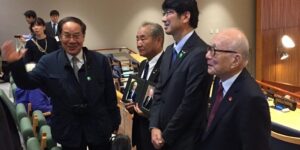
The 2024 Nobel Peace Prize was awarded to Nihon Hidankyo, a grassroots group of Japanese survivors of the atomic bombings of Hiroshima and Nagasaki in 1945, “for its efforts to achieve a world free of nuclear weapons and for demonstrating through witness testimony that nuclear weapons must never be used again,” sending a message to countries that are considering acquiring or threatening to use them.
This recognition is significant and appropriate as we approach the 80th anniversaries of the atomic bombings of Hiroshima and Nagasaki. The Hibakusha have worked for decades to bear witness to the horrors of nuclear war and are central to our common goal of banning and eliminating nuclear weapons.
